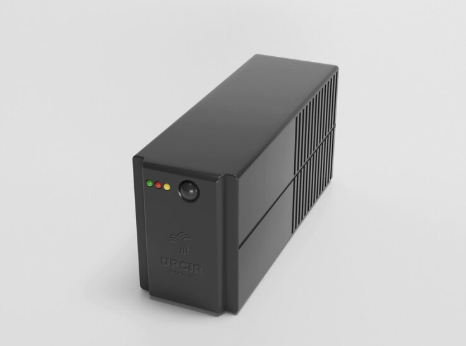APC UPS vs. Generic Brands: Is the Price Really Worth It?

Power cuts in Kenya aren’t a surprise anymore—they happen, often without warning. For businesses and homes alike, the question isn’t if backup power is needed. What kind? And more specifically, whether to go for something well-known like an APC UPS… or grab a cheaper, generic option that seems to do the same thing at a glance.
The price gap is hard to ignore. You look at the shelf—or the online store—and notice APC UPS units priced a fair bit higher than others. But are they really that different?
What You’re Really Paying For
It’s easy to think a UPS is just a box with a battery. It switches on when the power goes off. Simple. But once you start looking at how these devices behave during real blackouts or voltage drops, differences show up fast.
APC UPS systems tend to be more consistent. Better at keeping your equipment stable. That moment when the power flickers? With APC, your devices often don’t even notice.
The brand reputation helps too. If you search APC UPS, you’ll see how often it’s mentioned in professional setups, even in banks or CCTV installations. It’s the kind of product people use when failure isn’t really an option.
Is the Price Hike Just Branding?
That’s the part people debate most. Sure, APC costs more. But generic brands—some of them, at least—look similar. They promise the same features. Backup time. Surge protection. Auto shutdown. The difference? You only find out what corners were cut after you’ve bought it.
A few common issues reported with generic models:
- Charging gets erratic after a few months
- Internal fans start making noise—loud enough to notice in a quiet room
- The battery doesn’t last as long as claimed
- Sometimes, there is no clear warranty path if something goes wrong
Some units work fine early on. But when something feels off later—maybe it buzzes when the power changes—you realise the quality just isn’t there.
Real Scenarios Say a Lot
Consider two setups. One uses an APC UPS to power a point-of-sale system in a small grocery store. The other, a generic UPS for a home internet router.
Fast forward six months. The APC system is still kicking in seamlessly during outages. The store owner doesn’t think about it. It just works.
Meanwhile, the other system starts beeping randomly. Sometimes the router restarts during mild power dips. No one knows why. And then, during one of those longer blackouts, it doesn’t switch on at all. No lights. No charge.
That’s not to say every generic unit fails. Some last for years. But unless you’ve tested it in different load conditions and power fluctuations, you’re guessing.
A Few Details That Make a Difference
Some APC UPS units include a feature called automatic voltage regulation. It keeps power steady even during minor dips, without switching to battery. Less stress on the battery means longer life.
Generic brands often skip this. So they rely on the battery every time the voltage drops. That drains the battery faster and may lead to a shorter overall lifespan.
Also, pay attention to how UPS delivers power. Some cheaper models output what’s called simulated sine wave electricity. It works for basic devices but may cause buzzing or overheating in certain modern electronics.
By contrast, many APC models offer cleaner output that matches what the grid delivers. Especially useful when powering sensitive equipment.
It’s About Trust in the Moment Things Break
When things go wrong—say, a hard disk crashes because the system shut down mid-write—you won’t be thinking about the money you saved. You’ll be wondering why the backup didn’t kick in the way it should have.
Most professionals won’t risk that. If you look at setups in server rooms or NVR cabinets for CCTV, you’ll rarely find generic UPS units. There’s a reason for that. Consistency is hard to fake.
And when you start connecting more devices—maybe even a network switch—compatibility becomes a factor. APC systems usually handle multiple devices well, and the manuals actually explain how to calculate total load. Generic ones? Often, it’s just trial and error.
A Quick Note on Usage
For some people, a UPS is only there to keep the Wi-Fi running during load shedding. Or to give you enough time to shut down a PC. In those cases, the demands aren’t enormous. A basic UPS might be OK.
But once you’re protecting anything critical—files, security footage, POS systems—you want that extra reliability. Otherwise, one failed backup could turn into hours of lost work, corrupted drives, or unexplained reboots.
Where Generic Might Make Sense
Not everyone needs the highest tier of performance. There are use cases where saving a few thousand shillings makes sense:
- Basic router backup at home
- Temporary setups in short-term locations
- Budget-sensitive environments where outages are rare
Just don’t expect miracles. Most generic models won’t last five years. And even if they do, they might not behave the same way throughout.
Take This into Account
A power inverter might seem like a cheaper alternative altogether. But it’s not built for instant switchovers. A UPS kicks in within milliseconds. That’s the gap that protects your data or keeps your live camera feed rolling. An inverter can’t bridge that time. It wasn’t designed to.
And if a generic UPS fails, finding a matching replacement battery can be tricky. Many units don’t come with model numbers you can easily search for. With APC, you’ll usually find parts and support online or in local stores.
Final Thought
Choosing between APC UPS and generic brands comes down to one thing—how much risk you’re okay with.
If you’re just looking to squeeze out a few extra minutes during an outage and don’t mind replacing the unit in a year, generic might work. But if you’re running anything important—business systems, security devices, work-from-home setups—it’s a different story.
That price difference? It starts to feel smaller when weighed against the cost of downtime, repairs, or lost data.




